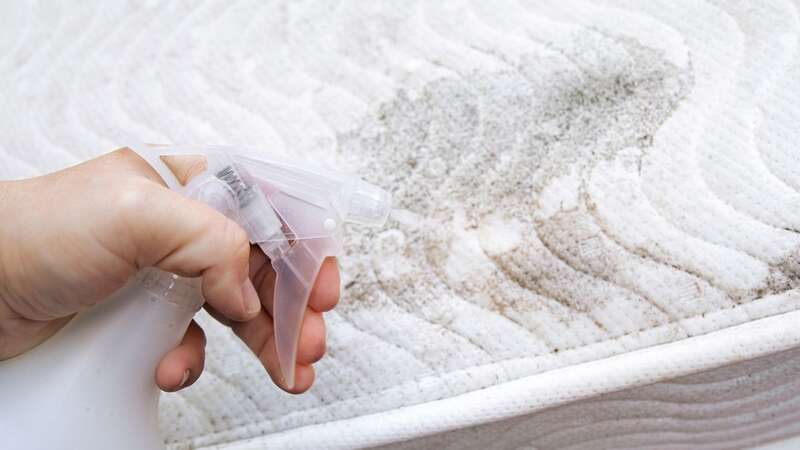
Mould often makes an unwelcome appearance on window sills and bathroom walls, but many homeowners are unaware that the pesky fungus can harbour on mattresses too.
The bedding provides the perfect environment for mould to thrive, as moisture from sweat and the natural humidity can build-up over time. With limited air circulation, cleaning expert Louise Allen describes mattresses as a "welcome mat for mould".
While there’s nothing better than breakfast in bed, accidental spills can also encourage spores to flourish, as the moisture can seep deep into the bed’s fibres. Mattresses should be cleaned every six months, as they can become infested with between 100,000 to 10 million dust mites.
It can also increase your risk of inhaling mould and E coli bacteria, which can cause diarrhoea, vomiting, sore throats, and itchy eyes. Louise, from Fountain Filters, said: "Regular cleaning and care of your mattress can greatly reduce the risk of mould growth. This includes vacuuming the mattress to remove dust and allergens, airing it out periodically, and flipping or rotating it according to the manufacturer's instructions.
"Ignoring these maintenance tasks can allow mould to set in and spread unnoticed, gradually degrading the quality and healthiness of your mattress." This comes as research has found that a seven year old mattress held more than 16 million CFU (colony-forming units) of bacteria per square inch.
 Morrisons is slashing over 130 prices on its saver-products from today
Morrisons is slashing over 130 prices on its saver-products from today
The expert then revealed a nifty trick that effectively eliminates mattress mould with just lemon juice, salt, and baking soda solution. She explained: "Start by sprinkling lemon juice over the mouldy area. The citric acid in lemon juice breaks down the cell walls of mould spores, essentially dissolving the mould. After applying the lemon juice, sprinkle salt and baking soda over the same area.
"These substances help draw out moisture and kill remaining spores. If possible, place the mattress in sunlight to dry, as the sun's UV rays further aid in killing mould." The trusty solution will only set you back by 20p if you opt to shop at Aldi.
The household guru also highlighted the importance of proper ventilation, which can prevent moisture accumulation in your mattress. Louise continued: "This could mean pulling back the bedding during the day to expose the mattress to air or occasionally leaving it near an open window to allow air to circulate around and through it."
Ensuring your bedroom itself has good ventilation is also essential, as well as keeping doors or windows open when the weather permits or using fans to help circulate air. When accidental spills strike, you should act quickly and make sure the area is completely dry.
If the spillage is significant, Louise suggests using a fan or hairdryer on a cool setting to help speed up the drying process. Investing in a dehumidifier can also significantly lower moisture levels, making it less hospitable for mould. The expert concluded: "Using a bed frame that lifts your mattress off the ground can help air move freely, keeping the underside of your mattress drier and less likely to grow mould."
Read more similar news:
Comments:
comments powered by Disqus
































